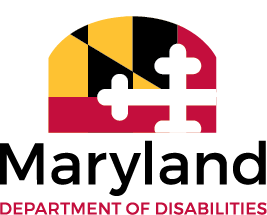What Is Assistive Technology?
Assistive Technology, also called AT, is an item, piece of equipment or software that helps you live or work more on your own. Activities that you may not be able to do on your own right now may be possible with assistive technology.
The tools allow you to carry out housekeeping, self-care tasks, work tasks, as well as talking, learning, and participating in free-time activities. Some tools are complex and would require a commitment from you to learn how to use them.

Examples of Assistive Technology (AT)
AT for self-care might include eating and drinking tools, bathing aides or motorized scooters. Office tasks can be made easier with the use of special software, adjustable desks and chairs, special keyboards and mice, or Braille and reading systems. AT that helps you talk with others includes speech generating devices, TTYs (teletypewriters), picture boards, and talking notepads. AT for learning consists of games, software, tools and tapes that teach reading, writing, and math. A few examples of AT for vision, hearing, and mobility disabilities include:
Vision
Hearing
Mobility
An assessment helps determine what AT is best for you. See AT Assessment for information on what to think about when being matched for an AT device.
Learn more about Assistive Technology
Maryland Technology Assistance Program (MD TAP)
This program teaches people about using assistive technology and can show you the latest technology. Maryland Technology Assistance Program (MD TAP)
Assistive Technology Guaranteed Loan Program
This program gives low-interest loans to people who live in Maryland to purchase assistive technology. Assistive Technology Guaranteed Loan Program
Feature Box Title
Other options to help you buy your assistive technology tools and machines. Additional AT Funding Options
Feature Box Title
Questions to consider when deciding if assistive technology is right for you. AT Assessment
Maryland Technology Assistance Program (MD TAP)
MD TAP is a program of the Maryland Department of Disabilities. MD TAP teaches people about using assistive technology. MD TAP can also show you the latest technology to help you find services and devices that best meets your needs. Having this support to find and try AT is important to help you go to work.
Assistive Technology Guaranteed Loan Program
Because the cost of AT may be more than you can afford, MD TAP and the Maryland Department of Disabilities run the Assistive Technology Guaranteed Loan Program. This program gives low-interest loans to people who live in Maryland. Other people, including your family, can help you in asking for the loan.
Not everyone gets a loan. However, this loan program has fewer rules than regular bank loans, making it easier for more people to receive loans.
Loan amounts range from $500 to $70,000, and you can use the loan to buy many kinds of AT. The loans can be used for more than just AT. You can buy training to use the tools, extended warranties, and maintenance plans.
Additional AT Funding Options
In addition to the AT Guaranteed Loan Program, you have other choices to help you buy your assistive technology tools and machines.
Schools are required to make a “reasonable accommodation” for students with disabilities to allow you to participate in school and school-related activities (Section 504 of the Rehabilitation Act of 1973). Plans can be created to help students with disabilities get accommodations that are not covered by their IEPs. Or, students with disabilities who do not need an IEP may still get accommodations through a Section 504 Plan. Contact your school for more information.
Your place of employment pays for AT when the AT tool is a reasonable accommodation for which you are eligible to receive. The Job Accommodation Network and Employer Assistance and Resource Network on Disability Inclusion are helpful resources for employers to learn about the benefits of making workplace accommodations.
Maryland Division of Rehabilitation Services (DORS) may be able to buy AT for you if it will increase your ability to go to work or to keep working. To be most effective, AT should be considered early in the process. Your counselor will talk with you about your needs and arrange for an assessment either through the Workforce Technology Center Rehabilitation Technology Services or through an approved community AT provider. This will give you an opportunity to try different types of technology to figure out what will work best for you. Training and follow-up evaluations should be provided. You must meet eligibility requirements to receive services from DORS.
If you receive Social Security disability benefits, you might be able to use Work Incentives to help you buy AT. These work incentives are not easy to understand. You should make sure that you talk about them with an expert. The Work Incentives Planning and Assistance (WIPA) projects have staff trained specifically on SSA Work Incentives. The WIPA project in Maryland is the Maryland Work Incentives Network (MD-WIN). Learn more about work incentives and who can help you to understand your options.
The Veterans Administration may buy AT if you are a Veteran with a disability. Contact the Veterans Affairs at the U.S. Veterans Administration for more information.
Take our AT Assessment:
Things to Consider
What tasks are difficult for you?
What have you tried before?
How involved will you be in the process?
How will you know if the AT device is a good fit for you?

